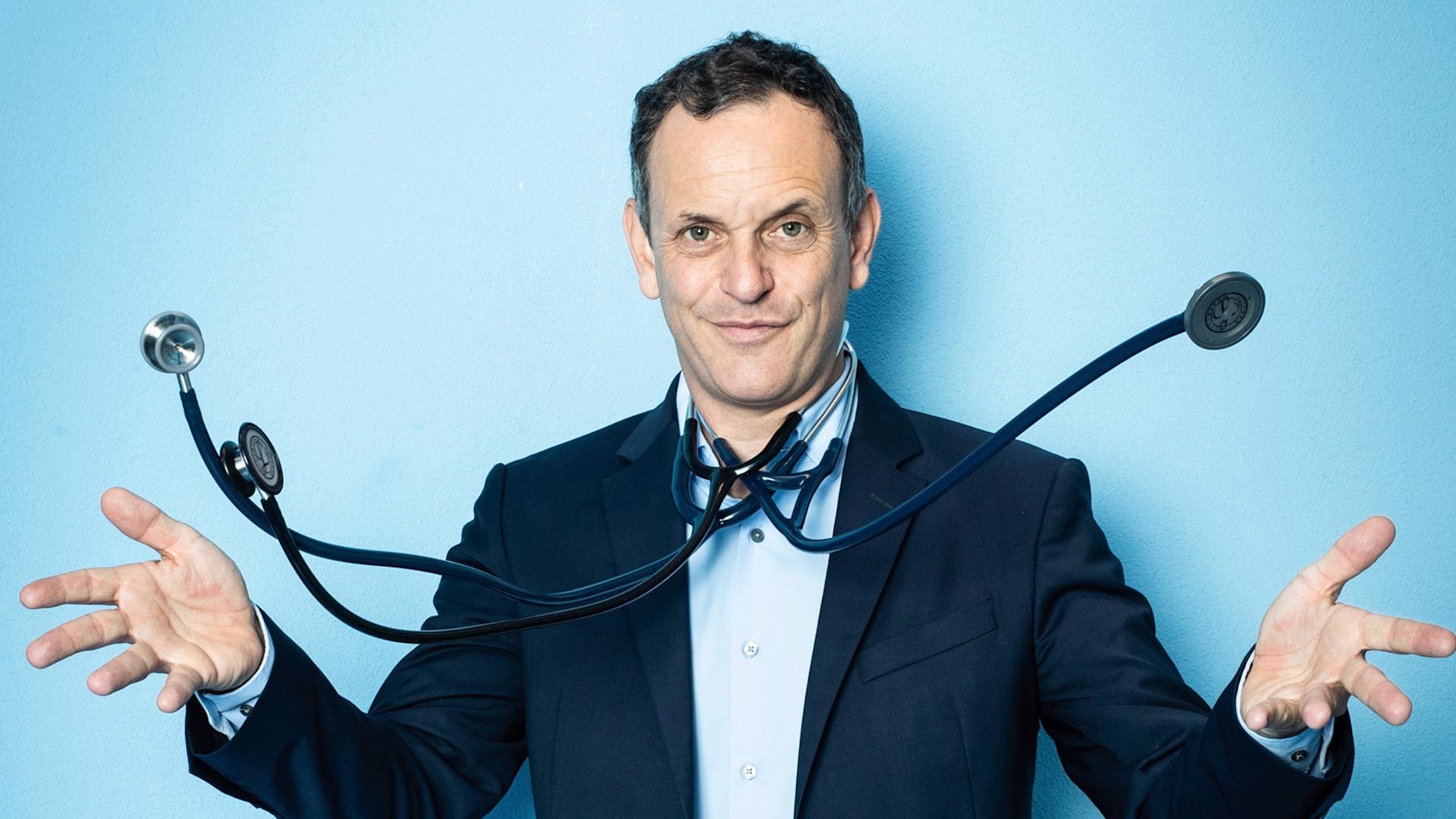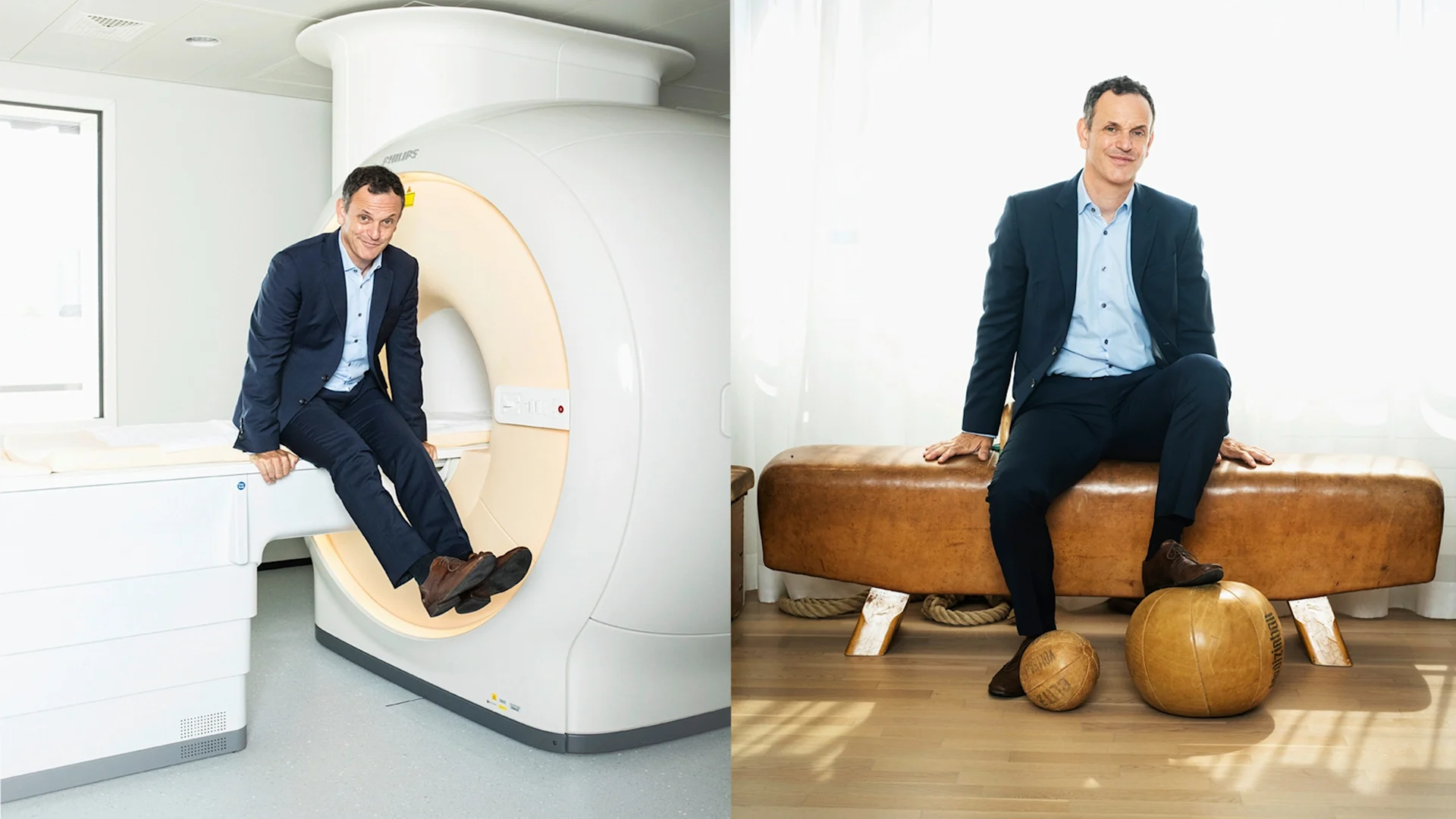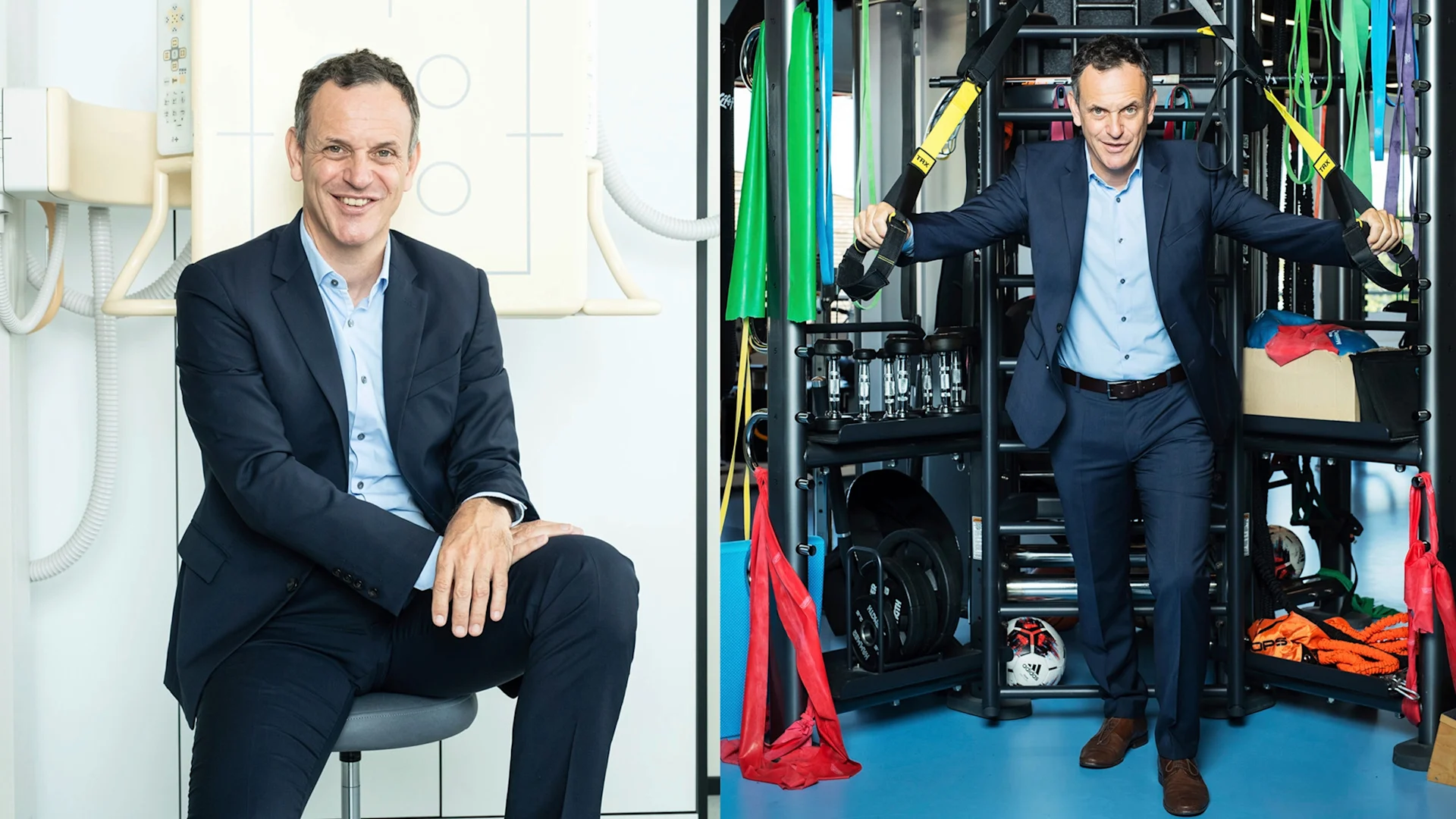
Striking a balance between work and family life
Two Migros employees talk about the balancing act of being parents, looking after their children and having a career.
navigation

Interview with the CEO of Medbase
Marcel Napierala is the head of Medbase, one of the largest Swiss healthcare providers. He knows more about the health of the Swiss population than almost anyone else in the country. A conversation about COVID, healthcare costs, the shortage of doctors and digitalisation.
The well-known lifestyle diseases: obesity, diabetes, high blood pressure, heart disease, metabolic syndrome. These are all increasing quite rapidly. This worries me. On top of that, there are mental illnesses such as dementia and Alzheimer's disease. I am personally very concerned about that.
It's easier said than done... so no, it's certainly not that simple and the underlying factors are complex. We need to invest more in prevention, though. Parents need to know what it means when a child eats all day and doesn't exercise. A simple example: What does losing weight mean? It's not that difficult. Losing one kilo means burning about 6000 extra calories. That, in turn, means going jogging ten times for an hour. But our healthcare system is not designed for that. We focus too much on making people healthy again.
For me, well-being and quality of life play a crucial role here. If someone is physically healthy but does not feel well, is tired of life, is that being healthy? Generally, however, we are very healthy. Today, a woman lives to be 85 on average, a man 82. 100 years ago, the average was just over 60. That is an incredible development.
For a year and a half now, we have all been preoccupied with a pandemic. How much longer will it last? I can't answer that, I don't have a crystal ball. We will all be smarter in retrospect. But one thing is certain: the vaccination rate in Switzerland is still below average. We should do everything we can to increase it.
Good to very good. With one exception: the outpatient sector, i.e. doctors' surgeries and pharmacies, was hardly involved in the fight against the pandemic at first. Ironically, we had to declare reduced working hours in certain areas. Whilst the pandemic plan provides a role for the military, it does not provide a role for the inpatient doctors and other well-trained health care workers. Thousands of physicians sat on the bench and had too little to do, while hospital employees were totally overworked. But it was certainly better to decide on the basis of an existing plan than to take sensitivities into account. I just hope that we never face a similar situation again.
It's a challenge for doctors, pharmacists and dentists. They are dealing with semi-informed patients. It is then up to the doctor to explain to the patient that his Google diagnosis is wrong for this or that reason. But that is only one side of the coin.

Thanks to Google and Co, there are more well-informed people. They think about their health. This empowers them to do something about it themselves. The ultimate goal is to avoid getting sick in the first place. And if you've been sick once, not to succumb to it again. Technological developments can help us achieve this.
Yes. There are many wearables available today to assist doctors in their work. Take this white sensor that many diabetics now wear on their arm. It is connected to the patient's mobile phone. It constantly measures the blood sugar level. This is great for physicians because they have all the relevant data to hand immediately. Thus they can coach their patients better.
We were three young physiotherapists and new to the health care sector. We just wanted to change things up a bit.
We all had a background in competitive sports and had seen that people in the medical area there work much more as a team. That is what we wanted to do in our practice. This concept still holds true today. We always look to the left and to the right. That's why today we have pharmacies and dental centres in our company in addition to medical practices. Our goal has always been to make it easier for patients to get from the doctor to the pharmacy, for example.
I knew a physician, he was my team doctor when I was a cross-country skier. He decided to relocate from Toggenburg to us in Winterthur, to work as a sports doctor and general practitioner. That's when we realised that our idea worked and doctors were interested in working with us.
Yes, that was always our dream. Don't forget, I also have a degree in business administration. We started to do the math and thought about how we could make it happen. I then developed a plan of action whilst I was studying business administration. The fact that one day we would be more than 3,000 people, that was never the goal.
Now we have to try to connect the processes between pharmacies, doctors' surgeries and dental centres well so that it is easier for the customers. This also includes making nurses part of our network.
No. I'm talking about what is known as «Advanced Practice Nurses», or APNs for short. We are supporting a project in Winterthur where nurses are trained to support doctors in their work. This is working very well. Now, we want to expand this to other locations.
They are clinically trained so that they can care for patients more comprehensively. Let's take the case of a diabetic, for example: the patient has two consultations with the physician, where treatment is fine-tuned and important questions are clarified. Afterwards, the patient is coached by a nurse.
No, it's not that there are not too few doctors in Switzerland, but there are, for example, too few general practitioners, especially in the countryside. In Zweisimmen in the Bernese Oberland, we have been looking for a doctor for quite some time. It is difficult to recruit someone for a rural region.
Because the working hours are usually long. And the earning opportunities are greater elsewhere. Indeed, in a number of places the supply of certain specialists is greater than the demand.
We should see to it that people stay in the profession. These days, many are going into consultancy or joining banks after university. That is not the purpose of this training, which is not exactly cheap.
There is overcapacity in several specialist areas. In orthopaedics, for example, there has been a real «battle» for patients. The first cantons are now taking countermeasures and limiting admission.
We are doing that to some extent. But about 60 per cent of our employees come from Switzerland. Then there are the neighbouring countries of Germany and France.

Almost. What is correct is that we have founded a company, Bluespace Ventures AG, in which another large hospital group currently has a stake in addition to Medbase. We are working together on an open and at the same time secure digital network where patients can store their health care data - or doctors and other specialists can store it for them. In this way, we want to simplify the exchange of data between patients and doctors - as well as between different health care professionals. In addition, we will offer other relevant digital healthcare services, such as booking doctor or therapy appointments. We are also open to new partners such as hospitals, health insurers or technology companies.
First and foremost because we need it. If we want to interconnect our activities, i.e. pharmacies, doctors' surgeries, dental clinics, maybe even fitness centres one day, and exchange the relevant data, then we need a system like this. It will also make us more efficient and save us money.
Let's take a knee injury. The doctor does an MRI, then the patient goes to the hospital. There they do another MRI because the patient doesn't have the data with her. This is very expensive. In our online portal, different specialists will in future have access to one and the same MRI. This will make multiple consultations obsolete. The prerequisite is that the patient consents.
They are empowered to take their health into their own hands and organise it independently. Access to their health data becomes easier and more transparent, and care is more coordinated. The data is secured. And patients decide for themselves who is allowed to see what.
Migros is a very reliable partner, not only in financial terms. We have been able to learn a lot from them, especially with regard to processes. Migros is a company that people trust and is committed to the well-being of the population. Migros is not a profit-maximising company. It's a perfect fit for us, and it's a unique opportunity in the healthcare sector.
Today, together with Migros, we can influence people's health in almost all areas. From nutrition to exercise and relaxation, through to the medical care.
Marcel Napierala is CEO of the Medbase Group, which he co-founded in 2001. Initially, he worked as a physiotherapist and CEO. At the same time, he got a degree in business administration. The outpatient health group, headquartered in Winterthur, has grown considerably in recent years. Today, it runs medical practices, dental centres and pharmacies at over 150 locations in Switzerland and employs about 3,200 people. Medbase has been owned by Migros since 2010.
What exactly do we do? Dive into our everyday life with fascinating stories from our branches, manufacturing operations and much more.